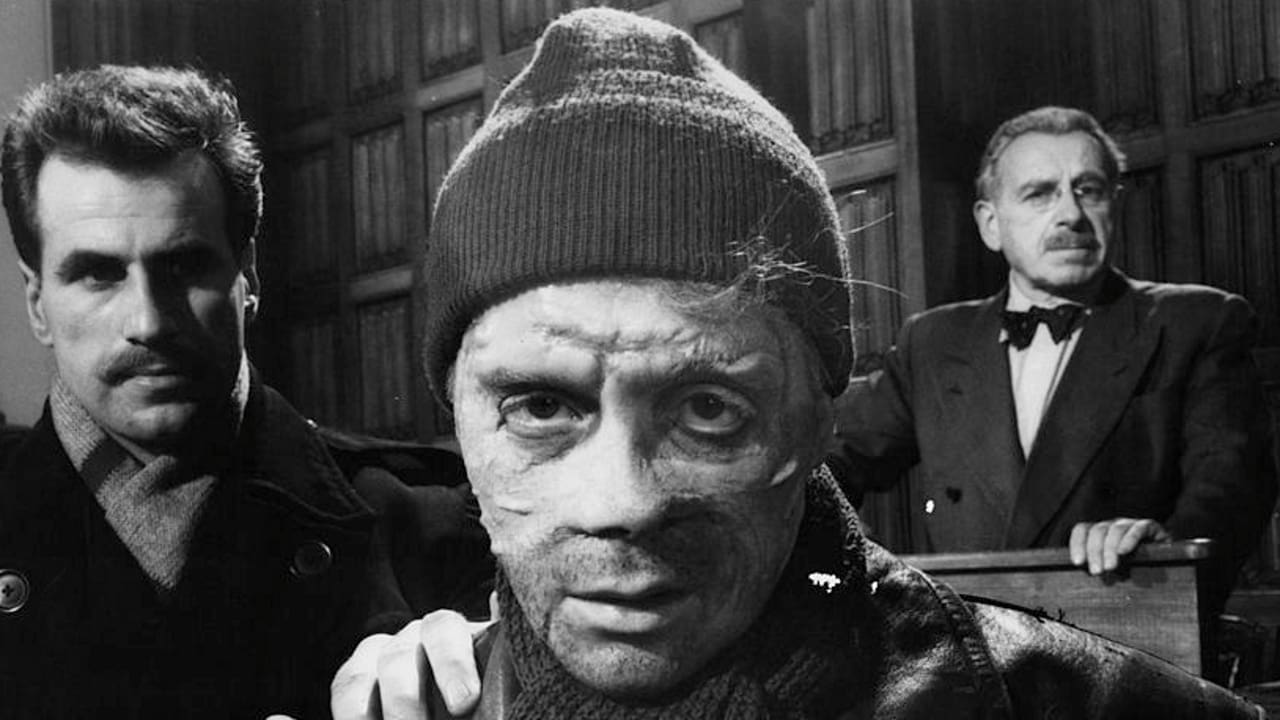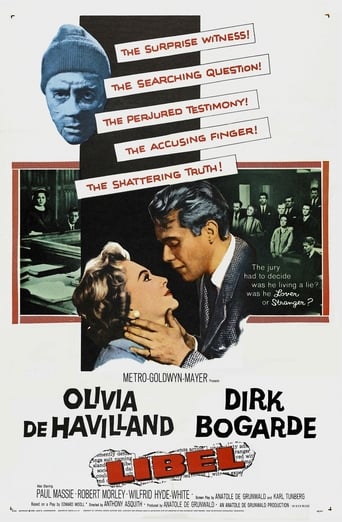



Purely Joyful Movie!
Horrible, fascist and poorly acted
Better Late Then Never
All of these films share one commonality, that being a kind of emotional center that humanizes a cast of monsters.
View MoreAmnesia is a film topic that sometimes works and sometimes doesn't. Here it works fairly well as we see the story of a Brit who -- after WWII -- has forgotten patches of his life, particularly the part of his life when he and several others escaped from a POW camp. Is he who he says he is, or is a look-alike who killed the real person? A lot of the film takes place in a British courtroom, and while it is not as enthralling a courtroom drama as say "Witness For The Proscecution", it still does nicely, although there times that the film drags just a bit.Dirk Bogarde was an actor whom I pretty much ignored over the years, although lately I've taken a new look at him. He really was quite good...and is here in a dual role. On balance, it's his film. But Olivia De Havilland has a good role as the wife, though more of her really good scenes come fairly late in the film. She certainly was attractive here. I can't quite make up my mind about Paul Massie as the soldier who questions who is the real character. Robert Morley is good as one of the attorneys, although Wilfrid Hyde White, as the other attorney, is a bit more entertaining.A great film? No. But pretty decent. It won't end up on my DVD shelf, but I'm glad to have seen it.
View MoreI unabashedly admit that Dirk Bogarde is one of my favorite actors, so naturally, two of him is better. In "Libel," directed by Anthony Asquith, he has a dual role - that of a baron, Sir Mark Sebastian Loddon, and Frank Welney, an actor and a lookalike in his barracks during World War II. When Mark returns from the war, he can't remember a lot of his past life and is haunted by images of events during the war that he can't connect with. Another soldier sees the baron on television and believes that he is really Frank Welney, and the story is published in a tabloid. Mark's wife (Olivia de Havilland) insists that for the sake of their young son, he sue for libel. He does.This is an often-told story, but I enjoyed it anyway. Bogarde is excellent as the uptight, insecure Mark and the cocky, nosy Frank, and while there is a strong resemblance between the two men, Welney's coloring and hairstyle is different, as is his manner. De Havilland turns in another marvelous, emotional performance as a woman who starts out believing her husband is indeed the man she loved before the war... and then having her doubts.Well directed and holds one's interest.
View MoreThis movie employs good actors, particularly some of the great English character actors of the time. However, the premise of the plot- one person changing identities with another, ruined the movie for me. What I don't understand, and wish some other movie buff could explain, how do writers get paid for stories when they show an complete lack of basic understanding of the military. Even way back in WWII, English soldiers were fingerprinted, and most soldiers wore their dog tags religiously, particularly those who served in combat. I would imagine a baron would be particularly concerned that his remains arrive back in the family plot. These two facts of military life were never explained. The final insult to our intelligence came when a uniform of a near comatose patient is presented in the court room. Since the war ended in 1945, and the setting of the movie was contempory (1959), 14 years had elapsed. What happened to the soldier's identification tags? What efforts had been made to notify the patient's family? In real life, the question of responsibility would have generated a search to determine whether the patient was a British soldier. The two main characters were captured at the evacuation at Dunkirk, often referred as the Miracle of Dunkirk because 400,000 soldiers did excape. The number of majors captured at Dunkirk would have been relatively small, and if a hospital was stuck with a patient for long term care, it stands to reason a serious effort would be made to determine who their patient was.
View MoreDirk Bogarde carries the main burden of this interesting courtroom drama co-starring Olivia de Havilland. Bogarde is an English barrister accused of being an imposter by a wartime buddy who has mistaken a look-alike they both knew in a POW camp as the man who has become Sir Mark Loddon. His understanding wife stands by him and encourages him to sue for libel but soon comes to have doubts of her own. Toward the climax, she turns on her husband and accuses him of "stealing" her love. Bogarde and de Havilland both have some excellent dramatic moments but it is Bogarde who rivets the attention with his fascinating dual role, achieving a distinct difference between the two men with just a slight change of hair style and a shift in attitude. Wilfred Hyde-White and Robert Morley are good in supporting roles as opposing barristers. It all moves smoothly under Anthony Asquith's crisp direction and all of the domestic scenes were filmed at the Duke of Bedford's magnificent country estate, giving production values a touch of elegance. The POW flashbacks are quite convincing--and the courtroom twist toward the end is nicely handled--if not quite convincing. Sometimes confusing--but always absorbing. MGM should release this one to video!
View More